Document Author
Year Published
- 2015 (10) Apply 2015 filter
- 2013 (7) Apply 2013 filter
- 2016 (5) Apply 2016 filter
- 2014 (4) Apply 2014 filter
- 2017 (3) Apply 2017 filter
- 2021 (3) Apply 2021 filter
- 2000 (2) Apply 2000 filter
- 2008 (2) Apply 2008 filter
- 2010 (2) Apply 2010 filter
- 2018 (2) Apply 2018 filter
- 1988 (1) Apply 1988 filter
- 1995 (1) Apply 1995 filter
- 1999 (1) Apply 1999 filter
- 2003 (1) Apply 2003 filter
- 2005 (1) Apply 2005 filter
- 2011 (1) Apply 2011 filter
- 2014; 2017 (1) Apply 2014; 2017 filter
- 2020 (1) Apply 2020 filter
- SRLN (1) Apply SRLN filter
Topic
- (-) Remove 100% Access to Justice filter 100% Access to Justice
- (-) Remove Courts filter Courts
- Reports, Evaluations, Best Practices, Surveys (24) Apply Reports, Evaluations, Best Practices, Surveys filter
- Research (24) Apply Research filter
- Self-Help Centers (23) Apply Self-Help Centers filter
- Trial Court Self-Help (21) Apply Trial Court Self-Help filter
- Reports (18) Apply Reports filter
- Strategic Planning (17) Apply Strategic Planning filter
- Linking a Self-Help Center to Other Services (13) Apply Linking a Self-Help Center to Other Services filter
- Legal Aid (10) Apply Legal Aid filter
- Allied Professionals (9) Apply Allied Professionals filter
- Technology (8) Apply Technology filter
- Best Practices for Self-Help Centers (7) Apply Best Practices for Self-Help Centers filter
- Evaluation (7) Apply Evaluation filter
- Simplification (6) Apply Simplification filter
- Articles & SRLN Briefs (5) Apply Articles & SRLN Briefs filter
- Private Bar (5) Apply Private Bar filter
- ATJ Commissions (4) Apply ATJ Commissions filter
- Ethics Education (4) Apply Ethics Education filter
- Impact of Self-Represented Litigant Innovations on Cost and Efficiency (4) Apply Impact of Self-Represented Litigant Innovations on Cost and Efficiency filter
- Judges (4) Apply Judges filter
- Justice Tech Entrepreneurs (4) Apply Justice Tech Entrepreneurs filter
- Triage (4) Apply Triage filter
- Unbundling (4) Apply Unbundling filter
- Clerk, Self-Help Center Staff, and Librarian Ethics (3) Apply Clerk, Self-Help Center Staff, and Librarian Ethics filter
- Managing a Self-Help Center (3) Apply Managing a Self-Help Center filter
- Scaling in Court Systems (3) Apply Scaling in Court Systems filter
- Starting a Self-Help Center (3) Apply Starting a Self-Help Center filter
- Working Groups (3) Apply Working Groups filter
- Administrative Agencies (2) Apply Administrative Agencies filter
- Attorney Ethics (2) Apply Attorney Ethics filter
- Best Practices (2) Apply Best Practices filter
- Constitutional Issues (2) Apply Constitutional Issues filter
- Evaluating a Self-Help Center (2) Apply Evaluating a Self-Help Center filter
- Libraries (2) Apply Libraries filter
- Presentations (2) Apply Presentations filter
- Regulatory Concerns (2) Apply Regulatory Concerns filter
- Remote (2) Apply Remote filter
- State-by-State (2) Apply State-by-State filter
- Surveys (2) Apply Surveys filter
- Triage & Service Portal (2) Apply Triage & Service Portal filter
- Automated Forms & E-Filing (1) Apply Automated Forms & E-Filing filter
- Conferences & Summits (1) Apply Conferences & Summits filter
- Forms (1) Apply Forms filter
- Funding (1) Apply Funding filter
- Judicial Ethics (1) Apply Judicial Ethics filter
- Plain Language (1) Apply Plain Language filter
- Plain Language & LEP (1) Apply Plain Language & LEP filter
- State Language Access Plans (1) Apply State Language Access Plans filter
- Webinars (1) Apply Webinars filter
State
- California (6) Apply California filter
- Maryland (5) Apply Maryland filter
- Alaska (4) Apply Alaska filter
- Florida (2) Apply Florida filter
- Utah (2) Apply Utah filter
- Washington (2) Apply Washington filter
- Idaho (1) Apply Idaho filter
- Illinois (1) Apply Illinois filter
- Massachusetts (1) Apply Massachusetts filter
- Minnesota (1) Apply Minnesota filter
- Montana (1) Apply Montana filter
- New Mexico (1) Apply New Mexico filter
- New York (1) Apply New York filter
- North Dakota (1) Apply North Dakota filter
- Texas (1) Apply Texas filter
- Virginia (1) Apply Virginia filter
Region
- (-) Remove United States filter United States
Tags
Post date
Search results
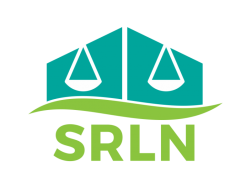
SRLN Brief: Rule 6.5- A Powerful Tool to Diversify Pro Bono and Transform Court Services (SRLN 2015)
Ethics rule 6.5 is a powerful tool to diversify pro bono programs and to transform court services because it allows unbundled lawyers to perform real time services in court-annexed programs without the onerous clerical burdens and limitations under the tr ...
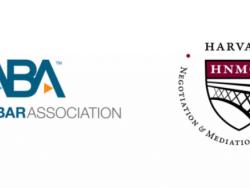
Report: Designing for Housing Stability: Best Practices for Court-Based and Court-Adjacent Eviction Prevention and/or Diversion Programs (Harvard Negotiation & Mediation Clinical Program and American Bar Association 2021)
Designing for Housing Stability: Best Practices for Court-Based and Court-Adjacent Eviction Prevention and/or Diversion Programs (Joint Report of the Harvard Negotiation & Mediation Clinical Program and American Bar Association 2021) The Task Force on ...
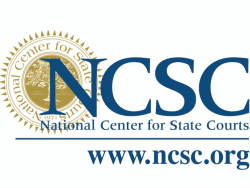
Paper: A Case for Court Governance Principles (Becker and Durham 2010)
State courts have had ample reasons for questioning the continued viability of traditional approaches to organizing their work and to providing leadership. This paper proposed a set of principles for governing state court systems that was intended to prov ...
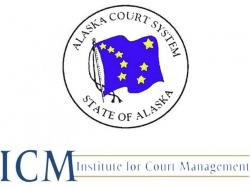
Article: Faster, Cheaper & As Satisfying: An Evaluation of Alaska’s Early Resolution Triage Program (Marz 2016)
The Alaska Court System, in partnership with the Alaska Pro Bono Program, created the Early Resolution Program (ERP) to address many issues with which courts across the country are grappling: how to efficiently and effectively manage divorce and custody c ...
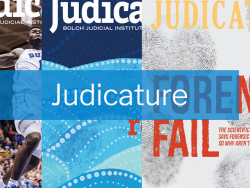
Article: Ensuring Access to Justice in Tough Economic Times (Broccolina & Zorza 2008)
This article outlines seven suggestions for the courts which require relatively small or easily found upfront investment and minor ongoing expenditures. This article first appeared in the November-December 2008 (Volume 92, Number 3) of JUDICATURE, the Jou ...
Article: Some First Thoughts On Court Simplification: The Key To Civil Access And Justice Transformation (Zorza 2013)
From the Abstract: Given the discrepancy between access to justice needs and the resources that are realistically made available, current incremental approaches are almost bound to fail. The only realistic path to providing 100% of litigants with meaningf ...
Article: No Legal Advice from Court Personnel- What Does that Mean (Greacen 1995)
This is the seminal article that explores the underlying rationale that resulted in the blanket prohibition of clerk's not being able to provide information to the public for fear that it would be advice. In the article, Greacen suggests the framewor ...
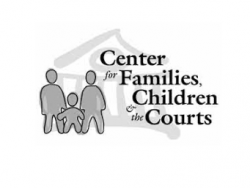
Article: Community Courts and Family (Chase, Alexander, Miller 2000)
The authors introduce the idea of a community court as an interaction among courts, social service agencies, and the community. They discuss several models, prominent among them the Midtown Community Court in Manhattan, before going on to apply community ...
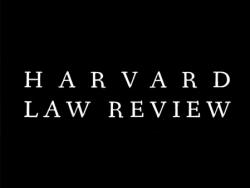
Note: Sixth Amendment Challenge to Courthouse Dress Codes (Harvard Law Review 2018)
Courthouses with dress codes require the public to conform to particular standards of attire in order to enter. They may be specific — for example, refusing entry to people wearing shorts, tank tops, hats, or clothing with writing or logos — or general — ...
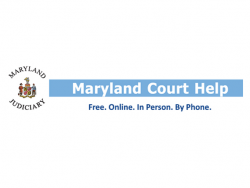
News: Self-Help Innovations in Maryland (News 2021)
The Maryland Court Help Center 2021 Provider Conference offered a glimpse into some of the cutting edge innovations in self-help in the COVID era. 1 Court Help Center Knowledge Base Maryland Court Help Providers have access to the Court Help Center Know ...